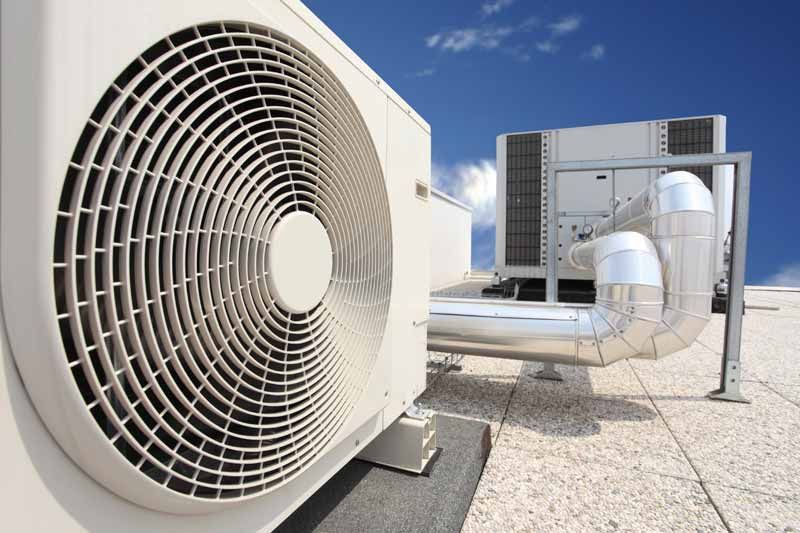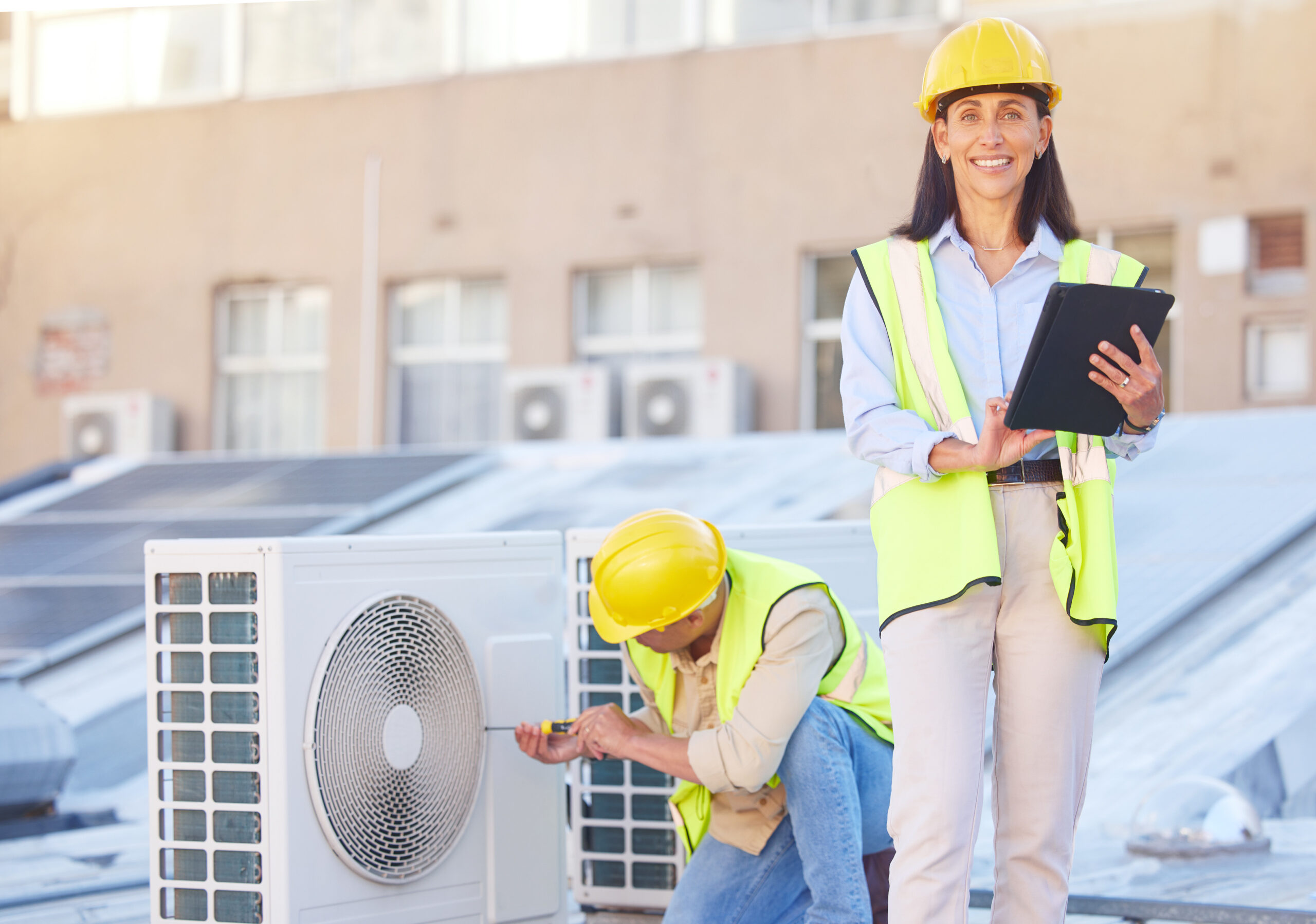Selecting Between a Heatpump and Heating System: Secret Factors To Consider for Your HVAC Needs
When assessing heating choices for HVAC needs, the decision between a heat pump and a furnace can be complex. Each system offers distinct advantages tailored to specific environments and power performance objectives. Recognizing these distinctions is important for making an educated choice. Key aspects such as setup costs and environmental influence better complicate the option procedure. Which option genuinely lines up with one's comfort and sustainability preferences? The adhering to sections will check out these considerations carefully.
Understanding Warmth Pumps: Exactly How They Work and Their Benefits
While lots of property owners think about various home heating choices, comprehending how heatpump feature and their benefits can greatly affect their choice. Warm pumps operate by moving heat instead of generating it. In the winter months, they draw out heat from the outside air or ground and transfer it inside, while in the summer, they reverse this procedure, cooling down the home by getting rid of heat outside. This twin capability makes them functional for year-round climate control.One of the main benefits of heatpump is their power effectiveness. They use substantially much less electrical power compared to conventional home heating systems, potentially causing lower energy expenses (furnace replacement). Furthermore, heatpump have a smaller carbon impact, making them an eco-friendly choice. They additionally require less maintenance than traditional systems, contributing to lasting price financial savings. In general, comprehending the technicians and benefits of heat pumps can aid home owners make informed choices regarding their heating and cooling down demands
Discovering Heaters: Types, Operation, and Advantages
Heating systems are available in different kinds, consisting of gas, electric, and oil versions, each with distinct functional devices. Recognizing these distinctions is important, as they influence performance and heating performance. Additionally, heaters provide various benefits, such as constant heat result and reliability in cooler environments.
Types of Heating systems
Heating systems can vary significantly in style and procedure, with heaters being a prominent selection amongst home owners. There are several kinds of heating systems, each using different gas resources and modern technologies. Gas heating systems are typical, leveraging gas to generate warm efficiently. Electric heaters, on the various other hand, utilize electrical resistance to produce warmth, frequently favored for their straightforward installation. Oil furnaces, while less typical, are efficient in areas with limited gas accessibility (furnace replacement). Furthermore, condensing heaters make the most of power performance by recycling and catching exhaust gases. Each kind runs through a system of warm exchangers and ductwork to disperse warm air throughout a home. Recognizing the distinctions in between these furnace kinds is important for educated heating and cooling choices
Benefits of Heating systems
For home owners seeking trusted warmth during cool months, the advantages of heating systems are substantial. Furnaces supply regular heating, making certain even temperature levels throughout the home. They are especially effective in extreme cool, often outmatching heatpump in cold conditions. Various types, consisting of gas, electrical, and oil heaters, offer adaptability to meet diverse needs and preferences.Furnaces likewise have a tendency to have reduced first installment prices contrasted to heatpump, making them a more available alternative for several. Their durable layout adds to a much longer life-span, with several devices lasting over 15 years with correct upkeep. In addition, modern heaters are frequently geared up with advanced technology for improved efficiency, which can cause decreased energy bills. In general, furnaces remain a dependable choice for reliable home heating.

Power Performance: Contrasting Warmth Pumps and Furnaces
When contrasting power performance in between heatpump and heaters, the Seasonal Power Effectiveness Ratio (SEER) plays a necessary duty in establishing efficiency. Furthermore, an operational cost analysis discloses the lasting monetary implications of each system. Understanding these factors can guide homeowners in making educated choices regarding their heating solutions.
Seasonal Power Effectiveness Ratio
Power performance plays a necessary function in the decision-making process in between warm pumps and furnaces, particularly when thinking about the Seasonal Power Effectiveness Proportion (SEER) This statistics procedures the cooling efficiency of heat pumps over a whole air conditioning period, giving a standardized means to evaluate efficiency. Higher SEER scores suggest better energy performance, converting to lower energy consumption and lowered utility costs. On the other hand, heaters are commonly assessed utilizing the Yearly Fuel Application Effectiveness (AFUE) ranking, which reflects heating performance. When comparing these 2 systems, property owners ought to prioritize SEER scores for heatpump, as they directly effect total energy cost savings and ecological sustainability. An extensive understanding of SEER can notably influence the long-lasting contentment and cost-effectiveness of the chosen a/c remedy.
Operational Cost Analysis
Comprehending the functional prices connected with heat pumps and heating systems is crucial for homeowners assessing their choices. Warmth pumps commonly provide greater power effectiveness, converting electric power right into heat with minimal waste. This leads to lower monthly utility bills, especially in moderate climates. Conversely, conventional heating systems, especially gas designs, may have lower upfront costs but can sustain greater functional costs in time because of fuel prices and efficiency ratings.Moreover, heatpump can operate as both home heating and cooling down systems, potentially decreasing the need for separate heating and cooling units. While initial investments for heatpump might be greater, their long-lasting savings in power effectiveness can make them a much more cost-efficient selection for many households. Mindful evaluation of local energy prices is necessary to establish the most effective choice.
Installation Prices: What to Expect for each and every Heating Unit
Installation prices for furnace can vary considerably in between heat pumps and furnaces, influencing homeowners' decisions. Heat pumps normally have higher in advance installment costs, typically ranging from $3,500 to $8,000, relying on the unit dimension and intricacy of installation. This consists of the exterior unit, interior handling system, and necessary ductwork adjustments. Alternatively, heating systems often tend to have lower preliminary prices, averaging in between $2,500 and $6,000, which can be appealing for budget-conscious house owners. Setup costs can boost if considerable ductwork is required.Moreover, the choice of gas type for furnaces-- natural gas, lp, or electric-- can likewise affect installment prices. While heatpump offer energy efficiency, their initial investment may prevent some purchasers. Inevitably, reviewing installment prices along with lasting financial savings and performance will certainly help property owners in making educated decisions about their furnace.
Climate Factors To Consider: Which System Executes Much Better in Your Area
How do climate problems affect the efficiency of heating systems? company website The performance of warmth pumps and heaters can differ considerably depending upon the neighborhood environment. In modest climates, heat pumps succeed by successfully moving heat from the outdoors air, making them an energy-saving alternative. Their effectiveness diminishes in exceptionally chilly temperatures, where they might struggle to remove sufficient warmth. Alternatively, furnaces, specifically gas designs, provide regular and trustworthy heat despite outdoor problems, making them preferable in chillier regions.In locations that experience milder winter seasons, warmth pumps can operate properly year-round, offering both home heating and air conditioning. In contrast, areas with harsh wintertimes frequently gain from the effectiveness of furnaces. Ultimately, recognizing the regional environment is vital when deciding between a warm pump and a heating system, as it straight affects their operational effectiveness and total efficiency.
Upkeep Needs: Long-Term Take Care Of Warmth Pumps vs. Furnaces
While both warm pumps and furnaces require regular maintenance to guarantee peak efficiency, their certain requirements and care regimens differ considerably. Furnaces typically require much less frequent focus, with annual evaluations sufficing to look for gas leaks, tidy filters, and examine overall capability. Their easier design often enables straightforward repairs.In comparison, heatpump demand semiannual maintenance because of their dual duty in heating & cooling. This includes cleansing coils, checking refrigerant degrees, and guaranteeing that both the outside and interior units operate at their best. In addition, heatpump upkeep often includes even more elaborate components, making specialist maintenance essential.Neglecting upkeep can lead to decreased effectiveness and raised energy prices for both systems. Eventually, homeowners should think about these long-lasting care demands when picking in between a heatpump and a heating system, as positive upkeep can expand the get more life expectancy and performance of either system considerably.
Environmental Effect: Picking a Sustainable Home Heating Choice
The environmental effect of furnace is an essential examination for home owners seeking sustainable alternatives. Warmth pumps are generally extra energy-efficient than conventional heaters, as they transfer warm as opposed to produce it, greatly decreasing carbon exhausts. By using sustainable power resources, such as air-source or geothermal heat pumps, property owners can additionally reduce their environmental footprint.On the other hand, all-natural gas heating systems discharge greenhouse gases and add to air contamination, though they frequently provide greater warmth output. Nonetheless, improvements in innovation have resulted in the growth of high-efficiency heating systems that decrease emissions.Ultimately, picking a heating unit click here to read involves weighing efficiency against environmental influence. Home owners are encouraged to assess regional power sources and incentives for sustainable systems, making sure an option that lines up with both individual comfort and environmental obligation. The decision affects not just instant comfort but additionally long-term sustainability and ecological wellness.
Often Asked Inquiries
Just How Long Do Warm Pumps and Furnaces Commonly Last?
The life-span of heat pumps typically ranges from 15 to two decades, while heaters can last between 15 to thirty years. Routine upkeep substantially influences their durability and effectiveness in giving home heating options.
Can I Make Use Of a Heat Pump in Incredibly Cold Climates?
Heatpump can operate in extremely cold environments, yet their effectiveness lessens as temperatures decrease. In such conditions, additional home heating resources might be needed to preserve comfortable indoor temperatures and assure peak efficiency.

What Is the Noise Degree of Warm Pumps Versus Furnaces?
The sound levels of warm pumps and furnaces vary significantly. Generally, heatpump operate more silently than conventional heating systems, making them more effective for those conscious seem, while heaters may produce louder functional sounds during home heating cycles.
Are Heat Pumps Suitable for Both Cooling And Heating?
Warmth pumps are undoubtedly suitable for both home heating and air conditioning (furnace replacement). They operate by transferring warm, supplying efficient temperature control year-round, making them a versatile option for home owners seeking an all-in-one a/c solution
What Size Heater Do I Need for My Home?
Figuring out the proper dimension home heating system for a home needs evaluating factors such as square video footage, insulation quality, local climate, and the home's design. Consulting a professional can ensure an accurate analysis and ideal comfort. Warm pumps generally supply higher energy effectiveness, transforming electrical power into warm with marginal waste. In moderate climates, warm pumps excel by efficiently transferring heat from the outdoors air, making them an energy-saving alternative. Alternatively, heaters, particularly gas designs, offer regular and trustworthy warmth no matter of outdoor problems, making them better in colder regions.In areas that experience milder wintertimes, warm pumps can run effectively year-round, providing both home heating and air conditioning. Heat pumps are normally extra energy-efficient than standard heaters, as they move warmth instead than create it, substantially decreasing carbon emissions. By using renewable power sources, such as air-source or geothermal warm pumps, homeowners can even more reduce their environmental footprint.On the other hand, natural gas heaters send out greenhouse gases and add to air pollution, though they often offer greater heat output.